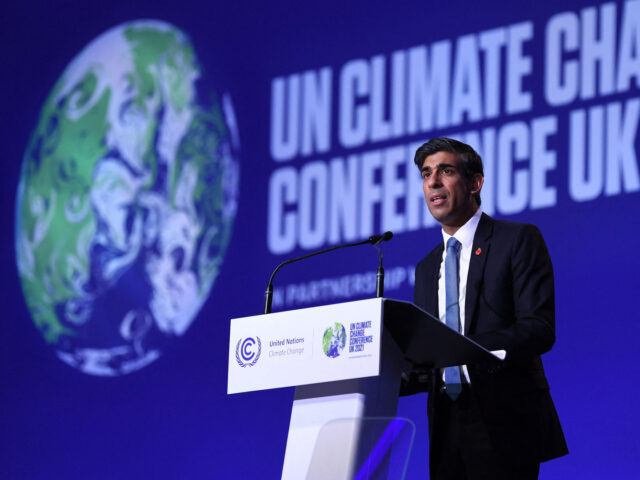The coup to install a technocratic globalist government in Westminster is now complete as former Goldman Sachs banker Rishi Sunak was invited to form a new government by King Charles III on Tuesday morning, after the parliamentary Conservative Party, alongside financial institutions, and the legacy media moved with astonishing speed to overthrow the short-lived Truss government.
Former Chancellor of the Exchequer (finance minister) Rishi Sunak has officially been installed as prime minister of the United Kingdom following the overthrow of Liz Truss, who has become the shortest-serving leader in British history after the establishment-wing of the Conservative Party ousted her over attempts to introduce supply-side market reforms and some small tax cuts.
With the ‘coronation‘ of Sunak, which came after a brief leadership contest among parliamentarians (without allowing voters, either in the wider Conservative party or the country at large to have a say), the UK can expect the very type of globalist government that the public believed they were freeing themselves from in the 2016 Brexit referendum.
For the 42-year-old, it has been a quick rise to power, after entering the House of Commons in 2015 and ascending to the top economic cabinet position of Chancellor under Boris Johnson in 2020. During his tenure as the top man at the Treasury, Sunak ushered in the highest tax burden placed on the British public in seven decades to supposedly pay down the enormous debt he accumulated by passing out checks to keep workers at home and businesses shut during the Chinese coronavirus crisis.
Sunak has the distinction of being so wealthy, with an estimated combined net worth of £730 million ($825 million) alongside his wife, that he will reportedly be the first inhabitant of Number 10 Downing Street to have a larger fortune than the reigning British monarch, leading to questions about his ability to empathise with the plight of the common man during the economic crisis, which he, in part, helped to create.
While former Prime Minister Boris Johnson faced criticism over his leftward lurch during his time in office, pursuing the World Economic Forum-inspired ‘Build Back Better’ green agenda shared by Democrat President Joe Biden, Sunak is likely to go further, given his close connections to the Davos-based institution.
Indeed, Sunak appeared at the World Economic Forum’s Green Horizon Summit in 2020 to advocate for a “whole of economy transition” to “green energy” sources.
“The challenge of climate change is clear and it is urgent,” Sunak said. “We need to ensure a positive and fair transition to Net Zero and protect our environment.”
The connection to the WEF does not stop there, however, as the company founded by his father-in-law N. R. Narayana Murthy, Infosys, is a listed partner of the World Economic forum. Murthy also previously served as co-chairman for the World Economic Forum meeting in Davos in 2005.
Further confirming his intention to govern as a globalist PM, backer Tobias Ellwood MP hinted at Sunak ushering in the so-called Great Reset schemed up by WEF chairman Klaus Schwab.
“The free [market] experiment is over — it’s been a low point in our Party’s great history. The reset begins,” Ellwood wrote on Friday.
One of the key agenda points of Davos, to usher in a cashless society, has also been promoted by Sunak, who has been one of the leading figures pushing for the implementation of a central bank digital currency (CBDC), through which governments would be able to track every expenditure made by citizens, leading to concerns that Britain will follow the likes of Communist China in implementing a social credit score.
The Bank of England has even reportedly suggested that the central bank-controlled Bitcoin alternative could be “programmable,” allowing the government to determine how and what people spend their money on.
The globalist agenda of Sunak will also likely see the UK push forward with his desire to deepen trade ties with China, with him arguing last year that the UK should seek to expand its cooperation with the communist nation on “global issues like health, ageing, climate and biodiversity.”
Unsurprisingly, Infosys also has ties to the country, with the Indian tech giant owning two Chinese subsidiaries, Infosys Technologies (China) Co Limited and Infosys Technologies (Shanghai) Co Limited, which reportedly netted the company £134 million last year.
During the leadership contest over the summer to replace Boris Johnson, the Global Times, one of the chief foreign language propaganda outlets for the Chinese Communist Party all but endorsed Sunak, hailing him as the only candidate with a “pragmatic view of developing balanced ties with China.”
Follow Kurt Zindulka on Twitter here @KurtZindulka

COMMENTS
Please let us know if you're having issues with commenting.